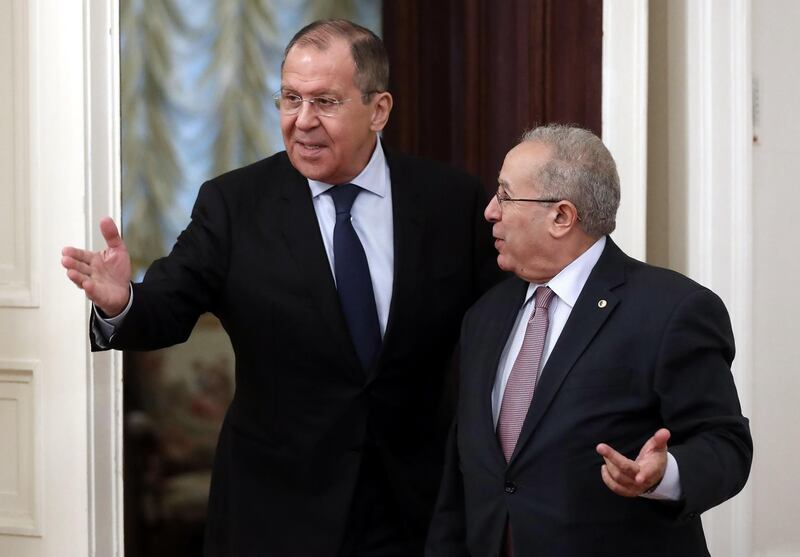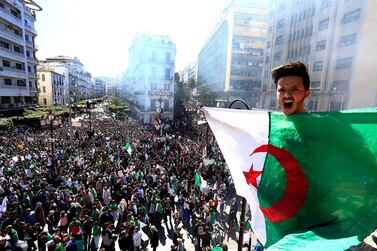Algeria's embattled president Abdelaziz Bouteflika has agreed to hand over power to an elected president and will hold talks with opposition parties, new Deputy Prime Minister Ramtane Lamamra said in Moscow on Tuesday.
Mr Lamamra, standing with Russian Foreign Minister Sergey Lavrov, said the government had responded to the legitimate demands of the Algerian people.
Mr Lavrov said the Russian government supported the Algerian leadership's initiative to hold talks but expressed concern at the protests, which he said were an attempt to destabilise the country.
The two held a meeting in Moscow, where Mr Lamamra started his tour of Algeria's allies. China is next on his schedule, followed by some European nations.
Presidential elections were cancelled and a Cabinet reshuffle was announced this month after weeks of protests against Mr Bouteflika's decision to run for a fifth term as president, despite being in poor health.
Mr Bouteflika also withdrew his candidacy for a fifth term, promising a national conference on constitutional reform.
But his 11th bid for peace did not stop demonstrations calling for him to stand down. Some fear that cancelling elections is an attempt to extend Mr Bouteflika's presidency.
Protests continued on Tuesday with thousands of students, university teachers and health workers demonstrating in downtown Algiers, telling the army not to interfere.
In the first direct message to the army from leaders after almost a month of mass protests, the National Co-ordination for Change said the military should "play its constitutional role without interfering in the people's choice".
The army has so far stayed out of the situation and the police only stepped in when the protests verged on rioting.
But on Monday Lt Gen Ahmed Salah hinted that the army could take a more active role in the conflict, finding a quick solution.
The army has a history of intervening in pivotal moments. They cancelled an election in the early 1990s, triggering a decade of civil war.
Judges, lawyers and key politicians have supported the demonstrations, which also call for an end to a government dominated by military figures, big businesses and independence war veterans.






